
 |
|
|
Vegetables
Volume 63 Number 3 Date 05/17/2018 ONION MAGGOT - Emergence of flies from overwintered pupae is likely to begin in parts of southern Wisconsin over the weekend of May 19-20. Degree day accumulations as of May 16 reached 650 at Beloit, 655 at La Crosse and 658 at Lone Rock; approximately 680 degree days (modified base 40°F) are required for adult emergence. Flies of this spring generation are usually the most damaging, especially at sites where onions are grown in succession and cull onions are left in fields. Preventative soil insecticides at seeding should be considered if maggot damage to the last season's crop exceeded 5-10%. Granular furrow treatments offer good control of first and second-generation maggots, provided the rate is correct and the insecticide is placed in the furrow properly with the seed. Home gardeners are advised to rotate this year's onion plantings as far as possible from last year's site to reduce the probability of damage. SPOTTED CUCUMBER BEETLE - Spring migrants were collected from Green County alfalfa earlier this week. These distinctive yellowish-green beetles with black spots do not overwinter in Wisconsin, but arrive on storm fronts at this time of year. Both the spotted species and the striped cucumber beetle transmit bacterial wilt of cucumbers, muskmelons and watermelons. Scouting field edges and interiors biweekly is recommended starting in late May once the beetles are noticed. Early control of the striped beetle species may be required in large commercial muskmelon or cucumber operations if numbers are high, especially if the beetles have been a problem in the past. The spotted cucumber beetle species is rarely abundant enough to require treatment. SEEDCORN MAGGOT - Emergence of first-generation flies has peaked statewide with the accumulation of 360 degree days (sine base 39°F). Heavy egg laying may still occur for another week in areas north of Wausau, but should be declining across the south. COLORADO POTATO BEETLE - Overwintered adults will soon begin emerging from hibernation and dispersing to plants near field edges. Egg deposition and larval hatch can be expected by the third week of May. The orange-yellow eggs are deposited in clusters of 15-30 on the undersides of leaves. LATE BLIGHT - According to the requirements of Wisconsin Administrative Code (ATCP 21.15(2)), potato cull piles must be fed to livestock, disked in, or otherwise removed by May 20, to prevent late blight from developing on volunteer plants. No late blight cases have been confirmed in Wisconsin at this early point in the season, but the risk of the disease occurring again in 2018 is elevated given the presence of the late blight pathogen in the state in 2017. -- Krista Hamilton, DATCP Entomologist 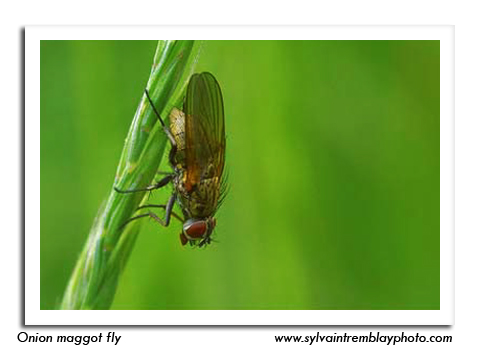
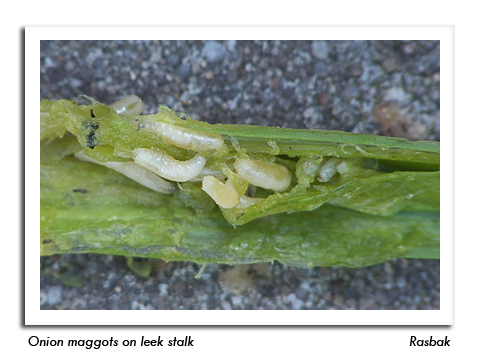
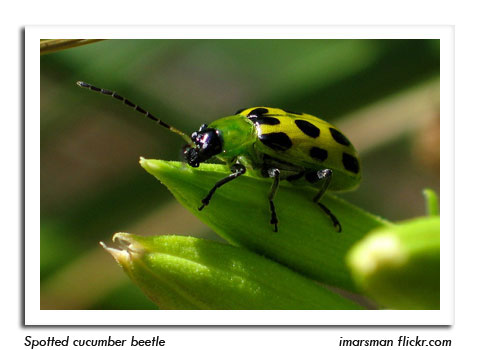
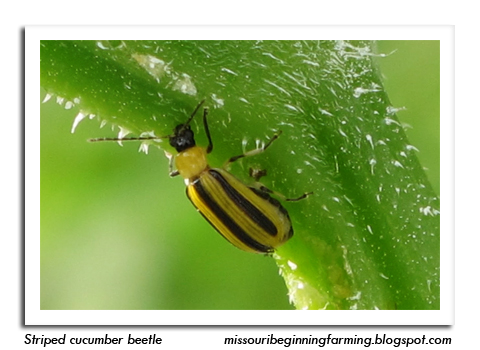

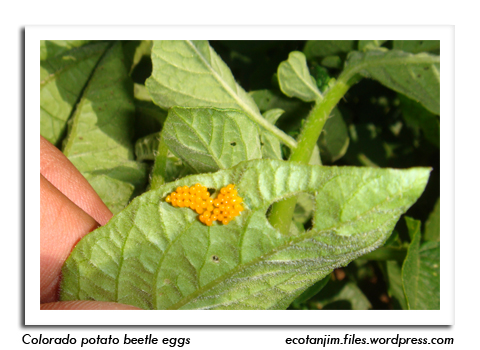
|
|
|